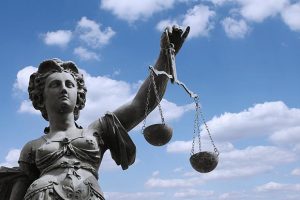 Well, here we are, January 20, 2017, and Donald J. Trump has been sworn in as this nation’s 45th president, though he achieved that position by losing the popular vote by the widest margin of any winning candidate in recent history (2.9 million more people voted for Democratic candidate Hillary Clinton), and he arrives at his new position with the lowest approval rating of any president in recent history.
Well, here we are, January 20, 2017, and Donald J. Trump has been sworn in as this nation’s 45th president, though he achieved that position by losing the popular vote by the widest margin of any winning candidate in recent history (2.9 million more people voted for Democratic candidate Hillary Clinton), and he arrives at his new position with the lowest approval rating of any president in recent history.
As numerous others before me have written, President Trump’s campaign was not traditional in any number of ways, and I expect that his presidency will follow that trend. For some, that’s been the whole point. For others, that’s a less-than-inspiring harbinger. I wrote this summer about my concern about the candidate’s rhetoric, proposed policies, and the rule of law.
Though he has since backed off some of his campaign promises (for example, about having a special prosecutor investigate rival Clinton for her use of a private email server—a favorite chant at his rallies was “Lock her up!”), nothing since that time has changed my view. I continue to believe that the president won’t be appreciably different from the candidate. The rule of law doesn’t appear to matter to him nor does he seem to believe it will ever apply to him. He’s already responded to the many questions about his business ties and associations creating conflicts of interest with the technically correct answer that a federal conflicts-of-interest law does not apply to him; but other rules and restrictions do.
Judge Andrew P. Napolitano says the rule of law is “[t]he greatest distinguishing factor between countries in which there is some freedom and those where authoritarian governments manage personal behavior.” It is, Judge Napolitano says, a “three-legged stool on which freedom sits.” He explains,
The first leg requires that all laws be enacted in advance of the behavior they seek to regulate and be created and promulgated in public by a legitimate authority. . . . The second leg is that no one is above the law and no one is beneath it. . . . The third leg . . . requires that the structures that promulgate, enforce and interpret law be so fundamental—Congress writes the laws, the president enforces the laws, the courts interpret the laws—that they cannot be changed retroactively or overnight by the folks who administer them.
As my colleague David Papke wrote this summer, “Americans live by the rule of law more so than any other nation.” As law students and as lawyers, we have a special duty to make sure that the rule of law continues, that it is upheld. We have special skills and access to people and institutions. As we head into this era, I implore you to be vigilant. We must use our powers for good: defend the rule of law.

You are surely right about Trump and his obliviousness/hostility to the rule of rule. The last time I looked, Trump had no legally-trained people in his inner circle.
This having been said, I would be inclined to say the rule of law in the United States is more of an ideological projection than it is an actuality. We like to hold ourselves out as the premier rule of law nation in the world, but certain domestic and foreign populations surely have reason to challenge that self-image. Does that cop have his gun drawn? Is that a drone flying overhead?